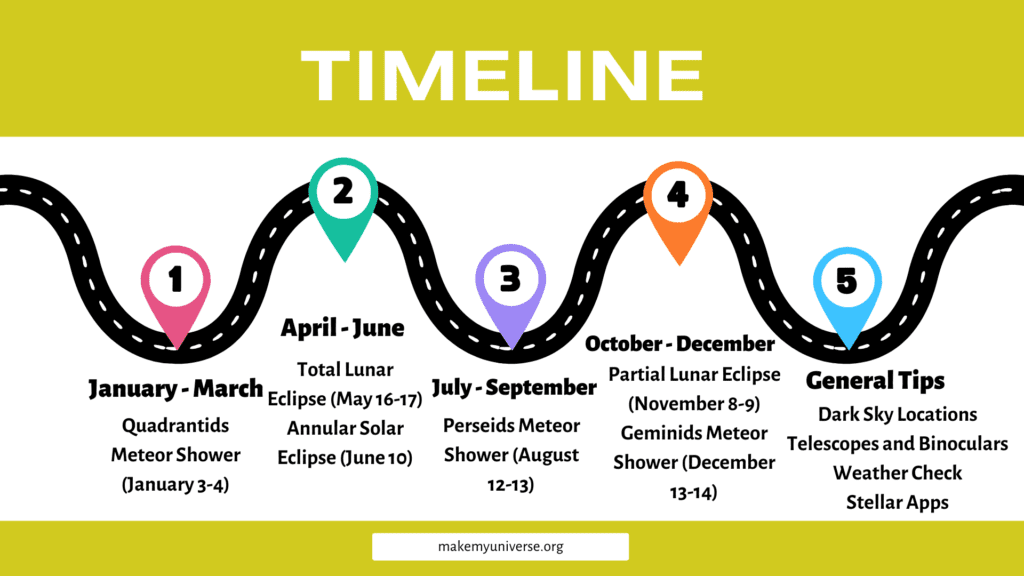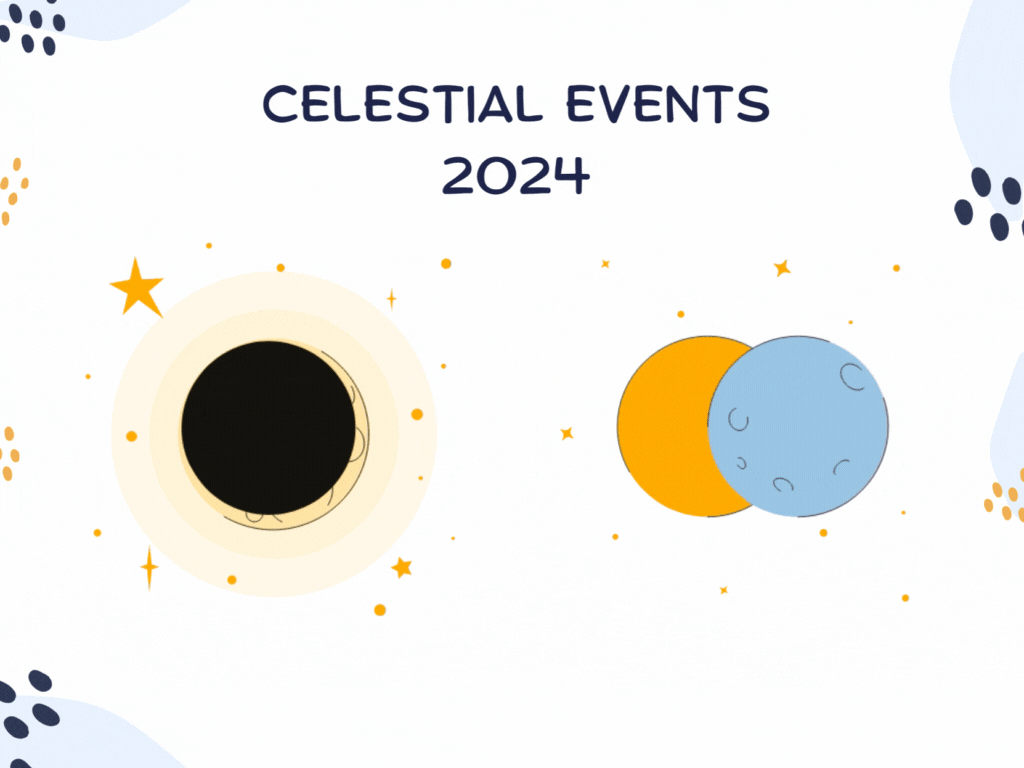Introduction:
Hey there, fellow sky watchers and cosmic enthusiasts! Get ready to embark on an incredible journey through the stars as we dive into what 2024 has in store for us. This year, the universe is putting on quite a show—a celestial spectacle that’ll leave us all in awe. So, grab your telescopes, mark your calendars, and let’s explore the cosmic calendar together! and Join us as we unveil the cosmic calendar, guiding you through the must-see celestial events in 2024.
January – March:
Quadrantids Meteor Shower (January 3-4):
Our celestial journey begins with the Quadrantids meteor shower, an annual display of fast and bright meteors that illuminate the night sky. Set your sights northeast after midnight to catch a glimpse of this breathtaking cosmic event.
April – June:
Total Lunar Eclipse (May 16-17):
In mid-May, during a total lunar eclipse, scientists from various observatories collaborated on a unique project. By analyzing the moon’s shadow, they unveiled new insights into lunar surface composition, opening doors to potential lunar explorations. And guess what? The Americas have the best view of this lunar spectacle!
Annular Solar Eclipse (June 10):
Fast forward to June, and get ready for a mind-blowing annular solar eclipse. Researchers are gearing up to study this rare event to better understand the sun’s corona. This could provide crucial data for space weather predictions a significant advancement in our understanding of the cosmos.
July – September:
Perseids Meteor Shower (August 12-13):
As summer reaches its peak, astronomers are preparing for the Perseids meteor shower. Did you know that during the Perseids, amateur astronomers identified a previously undiscovered asteroid? It’s amazing how these events lead to new cosmic discoveries. So, head away from city lights for an unforgettable celestial show!
October – December:
Partial Lunar Eclipse (November 8-9):
November brings a partial lunar eclipse, captivating skywatchers around the globe. Researchers plan to use this event to study Earth’s atmosphere, aiming to gain insights into its impact on lunar observations—a perfect blend of astronomy and Earth science.
Geminids Meteor Shower (December 13-14):
And wrapping up the year is the Geminids meteor shower in December. Scientists are excited about this shower because they’ll be using advanced technology to track meteor paths, contributing to our understanding of these celestial visitors.

General Tips for Celestial Observations:
- Dark Sky Locations: Seek out locations with minimal light pollution for the best celestial views.
- Telescopes and Binoculars: Enhance your stargazing experience by using telescopes or binoculars, especially for events like eclipses.
- Weather Check: Keep an eye on the weather forecast, as clear skies are crucial for optimal celestial viewing.
- Stellar Apps: Utilize astronomy apps to identify constellations, planets, and upcoming celestial events.
Conclusion:
As we navigate the cosmic calendar of 2024, these celestial events invite us to connect with the universe and marvel at its grandeur. Each meteor shower, eclipse, and planetary alignment adds a chapter to the story of our cosmic home. So, set your alarms, mark your calendars, and prepare to be awestruck by the celestial wonders that await us in the coming year.
In the words of Carl Sagan, “Somewhere, something incredible is waiting to be known.” Embrace the wonders of the cosmos and make 2024 a year of astronomical discovery.
Psst! Don’t miss out on trying our live planet distance calculator tool—it’s a cosmic delight with live animation effects. Happy cosmic adventures, fellow stargazers!

